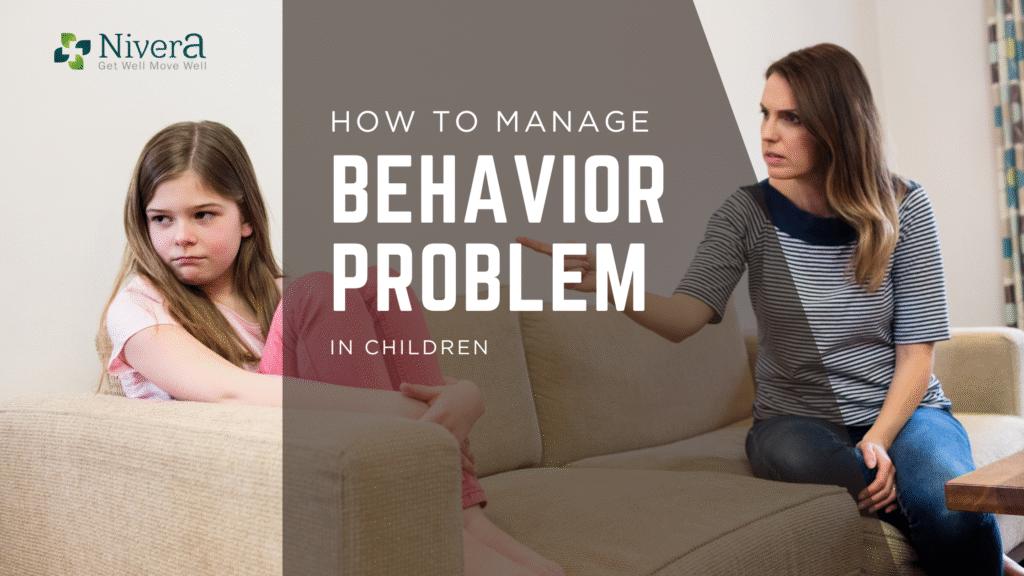How Parents Can Effectively Manage Problem Behavior in Children
Nivera Child Development Centre > Parents Guide > How Parents Can Effectively Manage Problem Behavior in Children
Nivera Child Development Centre > Parents Guide > How Parents Can Effectively Manage Problem Behavior in Children

Every parent has faced moments when their child throws a tantrum, refuses to follow instructions, or acts aggressively. While problem behavior in children is a common part of growing up, how parents respond plays a crucial role in shaping long-term habits, emotional regulation, and social skills.
Effectively managing behavior is not about punishment or control, but about understanding, guiding, and teaching children positive ways to express themselves. This blog provides parents with practical strategies, insights, and tools to handle challenging behavior, improve parent-child relationships, and support overall child development.
Problem behavior can manifest in many ways:
Tantrums & Meltdowns
Defiance & Refusal
Aggressive Behavior
Attention-Seeking Behavior
Impulsivity & Hyperactivity
Some children benefit from professional support when behavior is persistent or linked to developmental issues:
At Nivera Child Development Center, Kochi, our experts provide personalized plans, therapy sessions, and parental guidance to effectively manage problem behavior in children.
Q1: Are tantrums normal in all children?
Yes, tantrums are common in toddlers and preschoolers. Frequency usually decreases with age and guidance.
Q2: How do I handle aggressive behavior safely?
Set clear safety rules, redirect behavior, teach calming techniques, and avoid physical punishment.
Q3: When should parents seek therapy for behavior problems?
If misbehavior is persistent, severe, or linked to developmental challenges, consult a therapist for guidance and early intervention.
Q4: Can consistent parenting really change behavior?
Absolutely. Consistent, positive, and structured parenting is one of the most effective ways to manage and improve problem behavior.
Managing problem behavior in children requires a combination of understanding, consistency, and guidance. By adopting positive parenting techniques, teaching emotional regulation, and seeking professional support when needed, parents can help children develop self-control, social skills, and confidence.
At Nivera Child Development Center, Kochi, we provide behavior therapy, occupational therapy, and parental guidance to empower families in managing challenging behavior. Early support and intervention lead to healthy parent-child relationships and long-term behavioral success.
KOCHI, KERALA
Child development Centre, speech therapy centre, occupational therapy centres,behaviour therapy centres , education therapy center, special education center , autism treatment centres , aba treatment center, adhd treatment centre, ayurveda treatment for autism , child physiotherapy centre
Leave a Reply